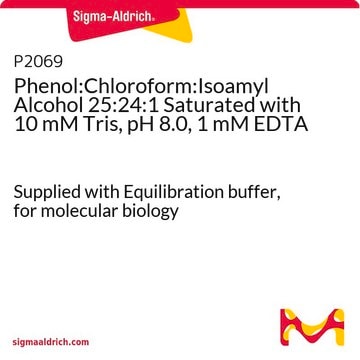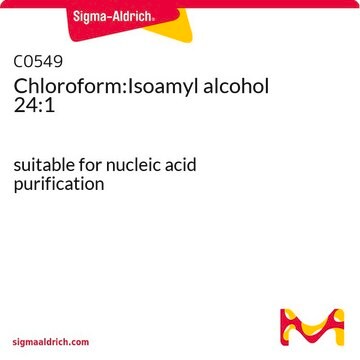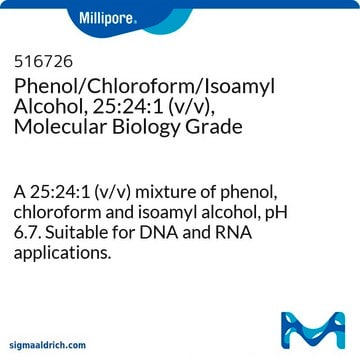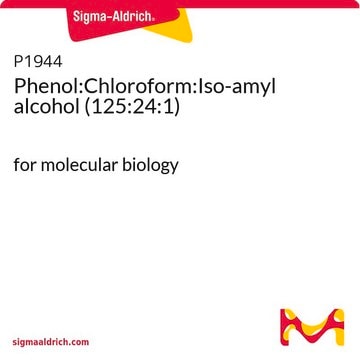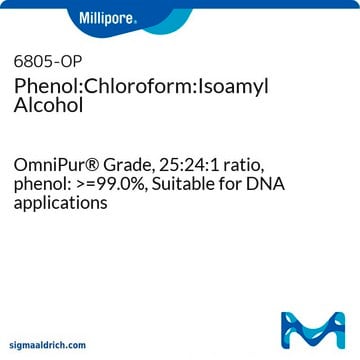P3803
Phenol:Chloroform:Isoamyl Alcohol 25:24:1, Saturated with 10mM Tris, pH 8.0, 1mM EDTA
for molecular biology
Synonym(s):
DNA extraction
About This Item
Recommended Products
grade
for molecular biology
Assay
≥99.0%
form
liquid
pH
6.5-6.9(pH of phenolic phase)
application(s)
agriculture
storage temp.
2-8°C
Application
Warning
Other Notes
Recommended products
related product
Signal Word
Danger
Hazard Statements
Precautionary Statements
Hazard Classifications
Acute Tox. 3 Oral - Acute Tox. 4 Dermal - Acute Tox. 4 Inhalation - Aquatic Chronic 2 - Carc. 2 - Eye Dam. 1 - Muta. 2 - Repr. 2 - Skin Corr. 1B - STOT RE 1 Oral - STOT RE 2 - STOT SE 3
Target Organs
Central nervous system, Liver,Kidney, Nervous system,Kidney,Liver,Skin
Storage Class Code
6.1A - Combustible acute toxic Cat. 1 and 2 / very toxic hazardous materials
WGK
WGK 3
Flash Point(F)
Not applicable
Flash Point(C)
Not applicable
Certificates of Analysis (COA)
Search for Certificates of Analysis (COA) by entering the products Lot/Batch Number. Lot and Batch Numbers can be found on a product’s label following the words ‘Lot’ or ‘Batch’.
Already Own This Product?
Find documentation for the products that you have recently purchased in the Document Library.
Customers Also Viewed
Our team of scientists has experience in all areas of research including Life Science, Material Science, Chemical Synthesis, Chromatography, Analytical and many others.
Contact Technical Service
